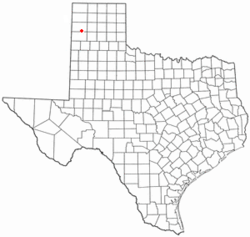2000 census
As of the census [3] of 2000, there were 936 people, 378 households, and 275 families residing in the city. The population density was 866.7 inhabitants per square mile (334.6/km2). There were 407 housing units at an average density of 376.9 per square mile (145.5/km2). The racial makeup of the city was 94.76% White, 0.96% African American, 0.75% Native American, 0.21% Asian, 2.88% from other races, and 0.43% from two or more races. Hispanic or Latino of any race were 9.40% of the population.
There were 378 households, out of which 31.2% had children under the age of 18 living with them, 58.7% were married couples living together, 12.7% had a female householder with no husband present, and 27.0% were non-families. 24.6% of all households were made up of individuals, and 13.5% had someone living alone who was 65 years of age or older. The average household size was 2.46 and the average family size was 2.93.
In the city, the population was spread out, with 26.9% under the age of 18, 7.6% from 18 to 24, 24.6% from 25 to 44, 24.1% from 45 to 64, and 16.8% who were 65 years of age or older. The median age was 39 years. For every 100 females, there were 87.6 males. For every 100 females age 18 and over, there were 83.9 males.
The median income for a household in the city was $30,481, and the median income for a family was $35,227. Males had a median income of $27,120 versus $22,500 for females. The per capita income for the city was $17,315. About 12.3% of families and 14.8% of the population were below the poverty line, including 20.0% of those under age 18 and 9.1% of those age 65 or over.






